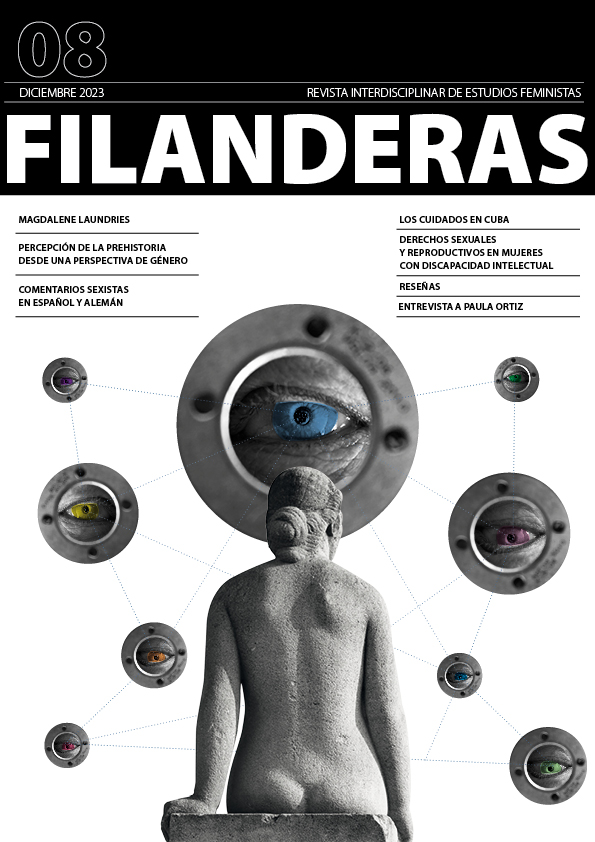Confronting Sexist Comments: Verbal (Im)Politeness in Spanish and German
DOI:
https://doi.org/10.26754/ojs_filanderas/fil.2023810002Keywords:
Gender, Pragmatics, Impoliteness, Intercultural, Spanish-GermanAbstract
This paper adopts a pragmatic perspective to examine the verbal responses to micro-sexist comments. The objective is to define and analyse the speech act «confronting sexist comments», focusing on the facework used among peers. The study was carried out with a Discourse Completion Task at the campus of the University Pablo de Olavide in Seville, involving Spanish students as well as German Erasmus students. The aim was to investigate how strategies of verbal (im)politeness, as defined by Culpeper, Bousfield, and Wichmann (2003) and Bousfield (2008), vary based on the Spanish or German linguaculture and the gender of the speakers. Intercultural studies (Siebold & Busch, 2015) predict that Spanish speakers would utilise positive facework more frequently than German speakers, while feminist studies (Mills, 2005) suggest that women are expected to display more polite linguistic behaviour than men. The results indicate that negative assessments of sexist comments were more prevalent in Spanish culture and among female speakers, whereas German and male speakers more frequently avoided reacting to sexist comments. Furthermore, the findings suggest that «confronting sexist comments» may be a speech act where the gender bias is more significant than intercultural differences between Spanish and German students.
Downloads
Downloads
Published
How to Cite
Issue
Section
License
Copyright (c) 2023 Elena Masarah Revuelta; Guiomar Topf Monge

This work is licensed under a Creative Commons Attribution-NonCommercial 4.0 International License.
Las autoras y autores que publican en esta revista están de acuerdo con los siguientes términos:
Conservan los derechos de autoría y garantizan a la revista el derecho de ser la primera publicación del trabajo al igual que licenciarlo bajo una Creative Commons Attribution Licence que permite a otros compartir el trabajo con un reconocimiento de la autoría del trabajo y la publicación inicial en esta revista.


